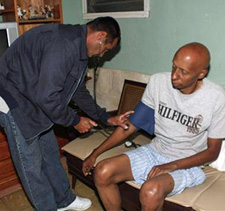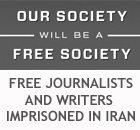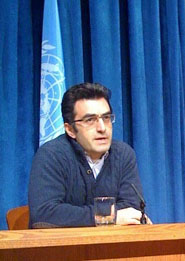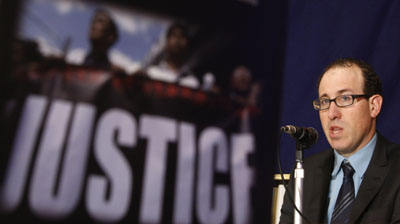CPJ urges EU leader to seek freedom for Cuban journalists
Dear President Rodríguez Zapatero: On the seventh anniversary of the Cuban government’s massive crackdown on dissidents and the independent press, the Committee to Protect Journalists calls on you as leader of the European Union to take the forefront in defending human rights by urging President Raúl Castro to immediately release 22 journalists now jailed in Cuba.
Spain must help free Cuban dissidents
Mark Twain once said, “In our country we have those three unspeakably precious things: freedom of speech, freedom of conscience, and the prudence never to practice either.” In the witty genius’ land, the United States, such irony suggests that people should not to waste the opportunities that democracy offers. But in Cuba’s case any humorous…

CPJ holds Cuba responsible for welfare of jailed journalists
New York, March 4, 2010—A week after the death of jailed Cuban dissident Orlando Zapata Tamayo, a journalist on a hunger strike is seriously ill while health conditions of imprisoned reporters remain dire. As the seventh anniversary of the massive crackdown on dissidents approaches on March 18, the Committee to Protect Journalists renews its call for the Cuban…

‘Our Society Will Be a Free Society’ launches petition
New York, March 1, 2010—In response to the brutal crackdown against journalists, writers, and bloggers in Iran, a coalition of leading press freedom and free expression groups have launched a petition drive calling for the release of those imprisoned. More such professionals are now in prison in Iran than in any other country in the world—at least 60,…

Sean Penn and the paparazzi
In a thinly disguised effort to distract me during a poker game on Saturday night, a friend asked if CPJ was planning to take up the case of the photographer who was attacked by Sean Penn. Frankly, this was the first time I’d heard of the incident that took place last October in which Penn…
Doing the numbers on press freedom
On Tuesday, CPJ released its annual report, Attacks on the Press, with a global launch in six cities—Tokyo, New York, Brussels, Bogotá, Cairo, and Nairobi. We’ve noticed that different media reports, using our data, have cited slightly different numbers in regards to two key statics, the number of journalists killed and the number imprisoned in…

At U.N, Bahari and CPJ urge global attention
Newsweek journalist Maziar Bahari helped us launch Attacks on the Press at the United Nations in New York today. Bahari, an Iranian-Canadian citizen, was labeled an enemy of the Iranian regime and cruelly imprisoned for 118 days last year in Tehran. His very presence today, CPJ Deputy Director Robert Mahoney noted, was testament to the…

Press freedom, new media in Tokyo
CPJ’s six-city launch of Attacks on the Press began today in Tokyo, where we hosted a panel discussion with Maria Ressa of ABS-CBN TV in the Philippines, Asahi Shimbun deputy foreign editor Nobuyoshi Sakajiri, NHK Middle East correspondent Nobuhisa Degawa, CPJ China expert Madeline Earp, and me.